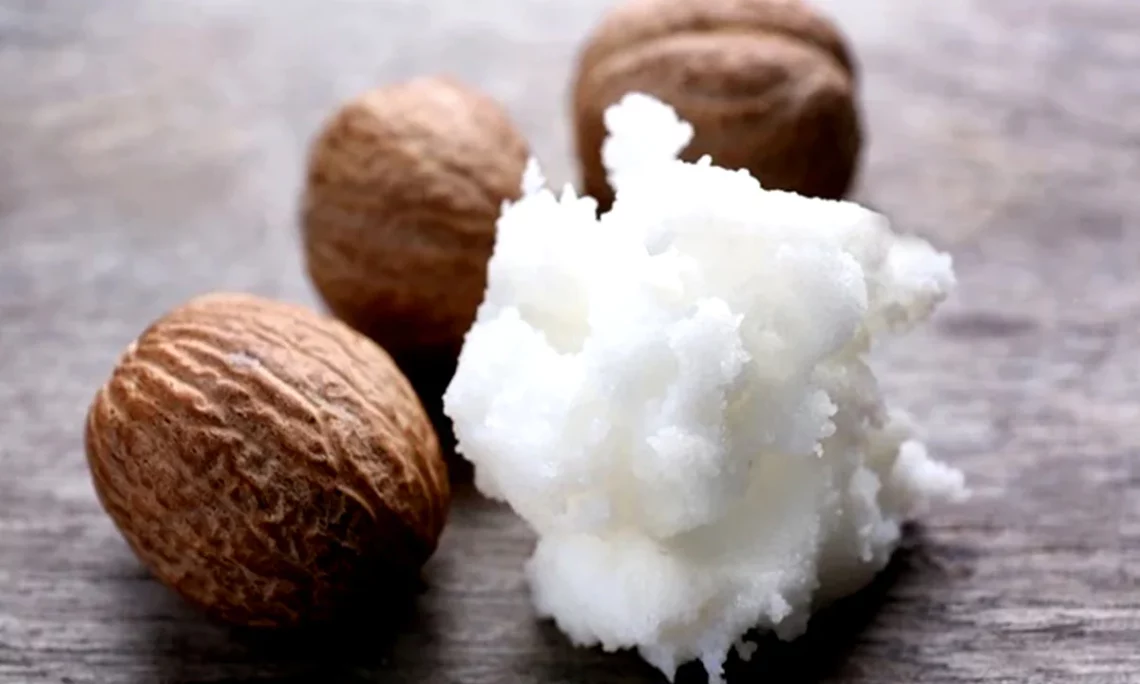Shea butter is in high demand around the world, and that demand is projected to grow by at least 5.2 percent compound annual growth rate (CAGR) by 2028, according to Transparency Market Research, a market intelligence company that provides global business research reports.
Shea butter is used as raw material for nutritional, cosmetic and pharmaceutical products; and has been in increasing demand over the years and counting.
The key factors driving growth of the shea butter market include the growing demand for cocoa butter alternatives in chocolate and confectioneries, increasing consumption of chocolate and bakery products, rise of product premiumisation in the food and beverages industry, and soaring shea butter consumption by cosmetics and personal care products manufacturers.
Cocoa butter is used in chocolates and confectioneries as a fat source, to give the products luster, texture, and snap. The demand for cocoa butter is increasing with the growing demand for chocolates and confectioneries. However, cocoa butter is witnessing supply constraints due to the declining yields of cocoa in major producing countries. Therefore, the price of cocoa butter is increasing rapidly, which is compelling manufacturers of chocolates and confectioneries to opt for other alternatives or equivalents to cocoa butter.
Shea butter is being increasingly used by manufacturers as a potential replacement for the costlier cocoa butter for application in chocolates and confectioneries. Leading manufacturers such as The Hershey Company and Mondel International, Inc. are using shea butter as an alternative source of fat to replace cocoa butter.
The growing demand for chocolate is fueling the demand for fat sources such as shea butter. Shea butter is used to provide and enhance the texture, consistency, and other properties of chocolate, and thus, is anticipated to witness proliferating demand with the ever-growing chocolate market.
Shea butter is also used as a raw material for margarine and shortening for the manufacturing of several bakery products such as dough, puff pastries, croissants, and others. Margarine is nothing but a copy of butter made from vegetable oil and water.
Cosmetic companies have begun to harness the power of shea butter to bring a level of diversification in the largely staid cosmetics industry. Growing consumer consciousness regarding the use of products that provide multiple benefits and nourishing qualities to attain the perfect skin and body is boosting the demand for shea butter in the cosmetics and personal care industry.
Shea butter is used in skin care, hair care, color cosmetics, baby oil, lotions, and other products due to its multiple functionalities. Shea butter acts as bioactive, emollient, and surfactant in various cosmetics and personal care products. Through continuous research and development, manufacturers of cosmetics and personal care products are trying to capture the skincare industry with the introduction of new products containing shea butter.
The increasing aging population continues to push up the demand for anti-aging products. Besides, the growing demographic of individuals longing for better appearance is expected to drive the growth of the anti-aging cream and ingredient sector. Unrefined shea butter is used as a prominent ingredient in anti-aging creams due its moisturizing and skin healing properties.
Shea butter heals skin conditions such as wrinkles, blemishes, acne, and eczema, and makes the skin smooth and lustrous. Besides, it is used to prevent dark spots and sagging skin, making it a vital ingredient for anti-aging creams. Hence, the growing demand for premium skin conditioning and anti-aging products is anticipated to bolster the demand for shea butter.
Locally, the use of shea butter is also being appreciated across the nation. Popularly known as mai kade in Hausaland, ori in Yorubaland, and Ogwuma in Igboland, the love for shea butter is increasing for use as balm or cosmetics.
Nigeria stands at a vantage position to own the global shea butter industry for obvious reasons. For one thing, more than 95 percent of the world’s shea butter is produced in sub-Saharan Africa, mainly in Nigeria, Ghana and Uganda, with Nigeria being by far the highest producer of the three.
Shea tree grows in 21 states in Nigeria, but the highest growth takes place in Kwara, Kogi, Niger, Oyo, and Ogun states.
Legend has it that no persons engaged in concerted efforts to plant shea trees; instead, animals roaming the vast expanse of Nigerian land chewed and excreted the seeds of the tree, thus planting the seeds in the 21 states the tree is present in.
Even with little effort, Nigeria is the leading exporter of shea butter in the world. Currently, China is the top importer of shea butter in the world.
With growing demand for shea butter around the world, and the industry expected to be worth more than $3.5 billion over the next few years, this is the time to own the market. And it’s not difficult. The animals have supposedly done their part. This is the time to make a concerted effort to plant shea trees. Next should be to build the necessary infrastructure to sustain Nigeria’s place in the global industry.
Nigeria has comparative advantage in the cultivation, processing and export of crude Shea butter in Africa over her counterparts due to the large arable land available for production and conducive climatic condition.
A research report estimates that the profit margins on the sale of shea butter to international buyers can be anywhere between 15 per cent and 110 per cent, depending on whether you’re the farmer or purchasing from the farms.
By all means, the shea industry has the potential to generate thousands of jobs for young Nigerians, be it at the farming stage, the brokering stage, the selling stage or at the industrial stage. As demand for shea butter is set to grow, so should production, and Nigeria is at the vantage point.





